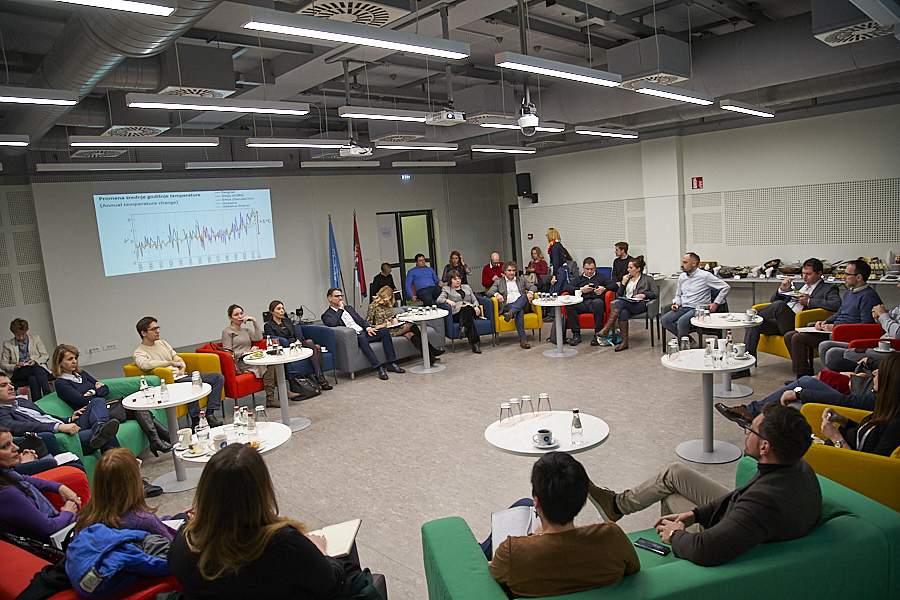On Friday, December 27th, 2019 the UNDP in Serbia organized a meeting with representatives of the relevant national institutions which are providing their support when it comes to adaptation to changed climate conditions in Serbia through this project which will last for the next three years and will be funded by the Green Climate Fund.
The main goals of this project are to help the Government of the Republic of Serbia to:
- Develop and strengthen capacities to adapt to changed climate conditions (CCA);
- Conduct climate risk and vulnerability assessments;
- Develop effective methods, tools and informational systems for development of decisions on climate risks and sectorial adaptation measures.
The overall goal is to reduce the risk of climate change and to integrate the issues of adaptation to changed climate conditions into development planning and financing.
Beside this project inception meeting, a presentation on potential sources of financing the struggle against the climate change as well as the financing of the green projects and investments in overall was held. Discussion was focused around the existing and potential new mechanisms of financing the climate and green projects and all this in the context of accessing the global financing instruments such as the Green Climate Fund and “green credit lines” of the international finance institutions. Participants were given the opportunity to hear more about the new “Green deal” of the European Commission, a program document which puts the European development and fiscal policies in the center of the fight against the climate change, as well as about the circular economy and protection of the nature and the environment as a whole.
Professor Vladimir Djurdjevic from the Faculty of Physics of the University of Belgrade spoke about the main challenges when it comes to adaptation to climate change in Serbia with conclusion that the biggest losses will be caused by floods, droughts, high temperatures and wild fires. He said that in the period of 1890 and 1970 in overall 13 dry years were recorded while the same figure is observed for the period of 1970 to 2010, a fact which says that the number of dry years is doubled since the initiation of temperature measurements in Serbia.
Ms. Danijela Bozanic from the Climate Change Consulting presented the projected GDP losses and potential job losses in certain areas which are caused and could be affected by climate change. She spoke about the sectors in the economy that will be hit by the climate change the most. Among these are: health care, agriculture, energy sector but also the overall loss in workers productivity, availability of drinking water and crop yields. These are the factors which will have the biggest influence on the state budget, which will need to secure the adequate answers to changed climate conditions. When it comes to GDP, in case that no adaptation measures are implemented and average temperature raises to 2⁰C, the GDP could be reduced for 4.53% in the period 2020-2040 or even by 9.32% by 2100. The point was put on the overall social transformation towards the direction of climate/carbon neutrality and planning for the changed climate conditions, which means putting the focus on urgent investments in the area of preventive measures rather than on taking care of the consequences.







